Fugitivity and Waywardness
Fugitivity and Waywardness
An open conversation hosted by Saidiya Hartman and Fred Moten around ‘fugitivity’ and ‘waywardness’ and what it means to be in flight, excessive or ungovernable.
ReadTo be marooned, a fugitive in flight, is not always a bad thing. It can only mean, at the best of times, that one is pursuing love. – Joy James.
An open conversation hosted by Saidiya Hartman and Fred Moten around ‘fugitivity’ and ‘waywardness’.
What we wrote about it at the time: To be fugitive is to be criminal, at large, in flight. The wayward is that which deviates, is disobedient, insubordinate, ungovernable. But there is no shame in such criminality and unruliness. Instead, the fugitive or wayward disprove the racist, sexist, classist ideologies that deems them as such. They insist that resistance is prior to power – the endlessly differentiated messiness of everyday life already exists, and should be conserved, moved, insisted upon. What are the politics of the wayward or fugitive, of self-defence, self-organisation and flight? What can we learn from runaway slaves, maroon societies and the underground railway, from queer counter-publics and from waywardness in Glasgow today?
Fred is one of the great poets, educators and theorists of blackness and fugitivity. Saidiya’s book Scenes of Subjection… is one of the most telling contributions to current black thought – she is currently working on ideas of waywardness.
Documentation
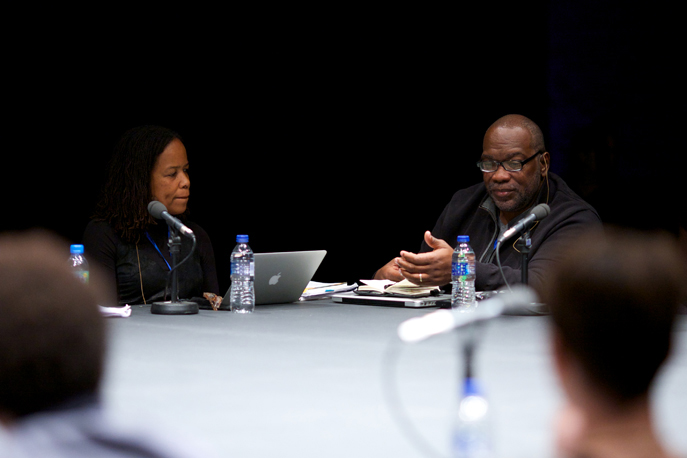
▴ Credit: Alex Woodward
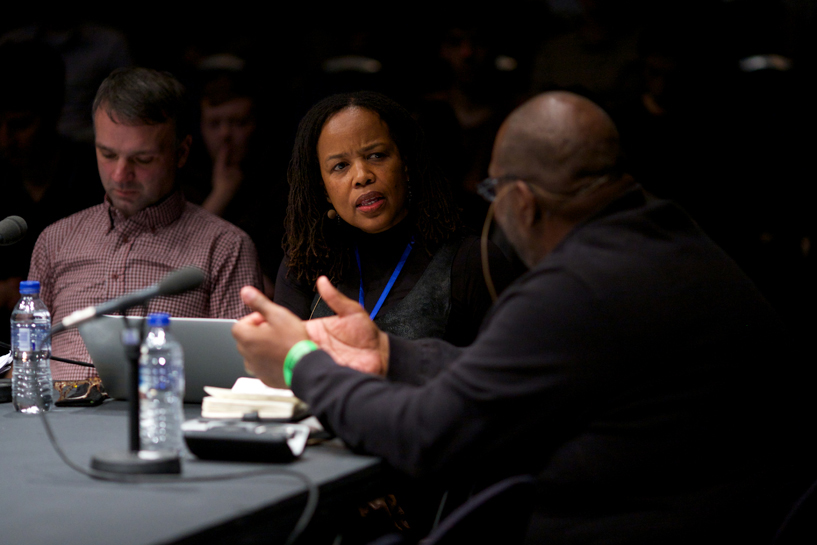
▴ Credit: Alex Woodward
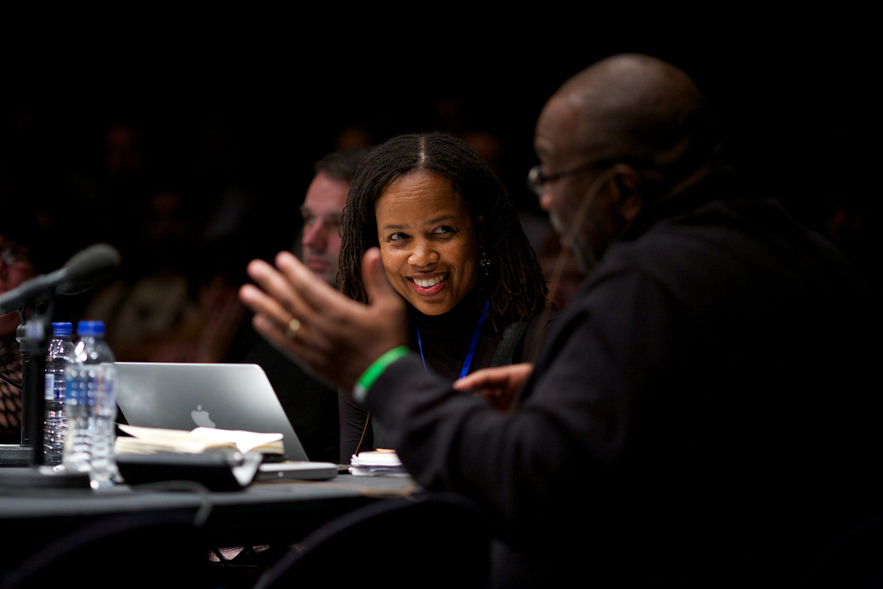
▴ Credit: Alex Woodward

▴ Credit: Alex Woodward
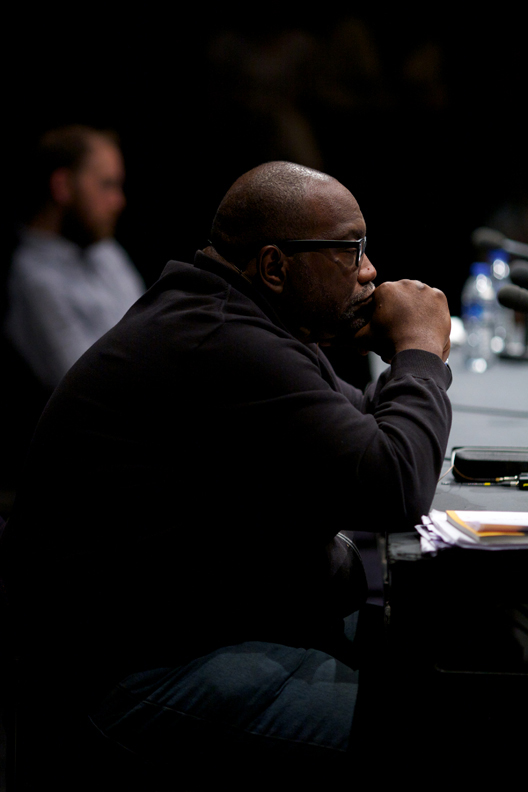
▴ Credit: Alex Woodward
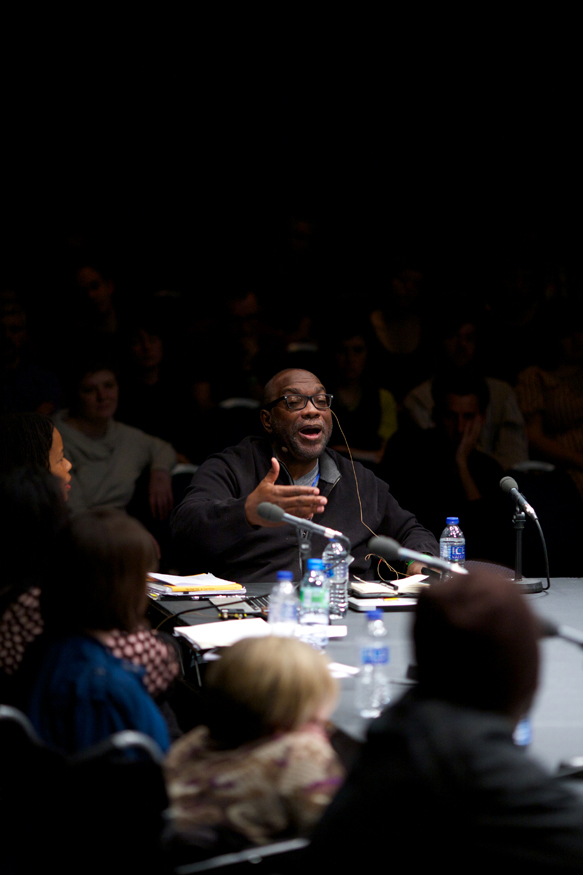
▴ Credit: Alex Woodward
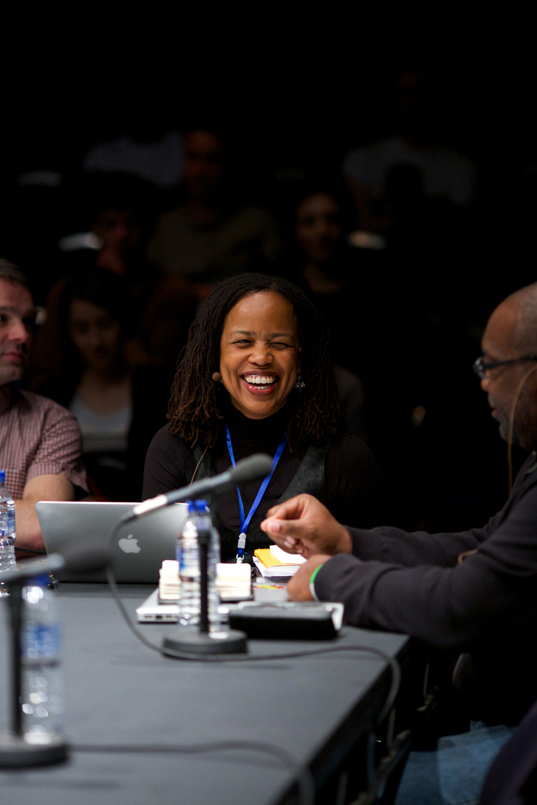
▴ Credit: Alex Woodward
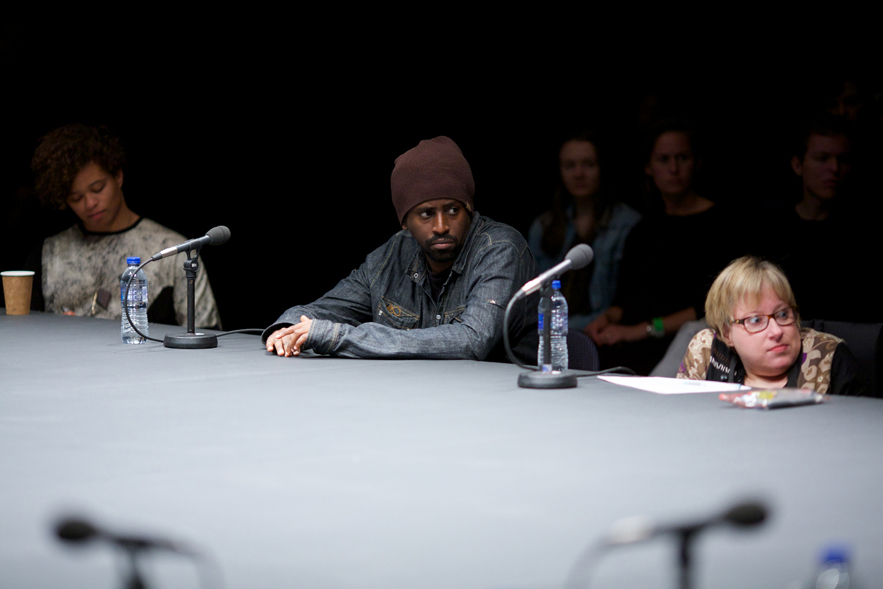
▴ Credit: Alex Woodward
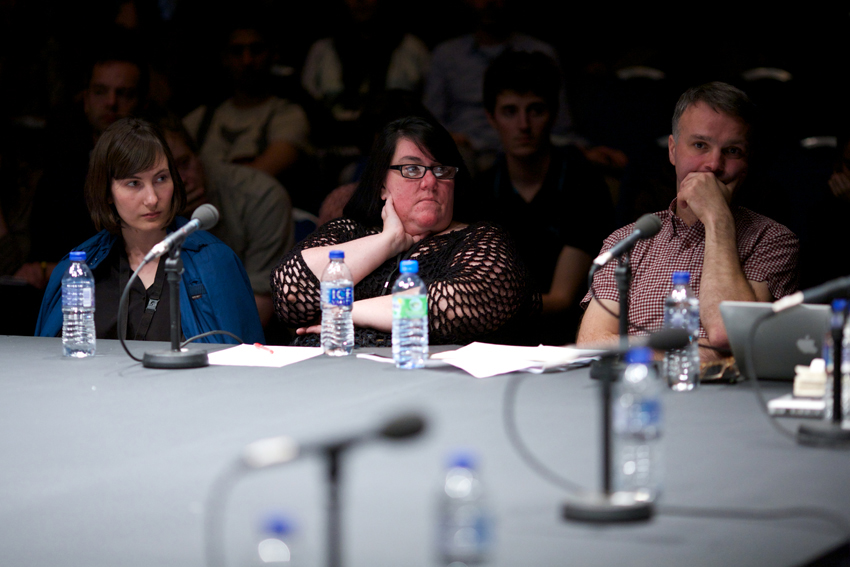
▴ Credit: Alex Woodward
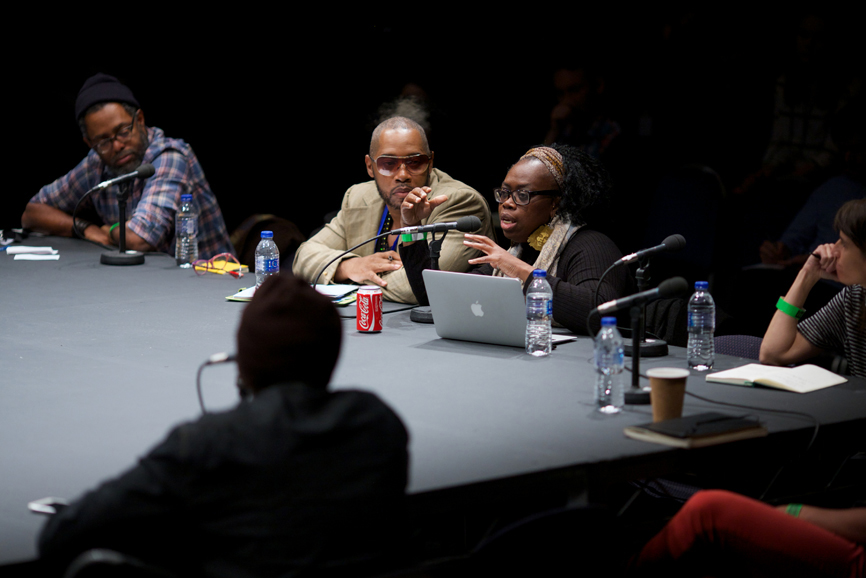
▴ Credit: Alex Woodward
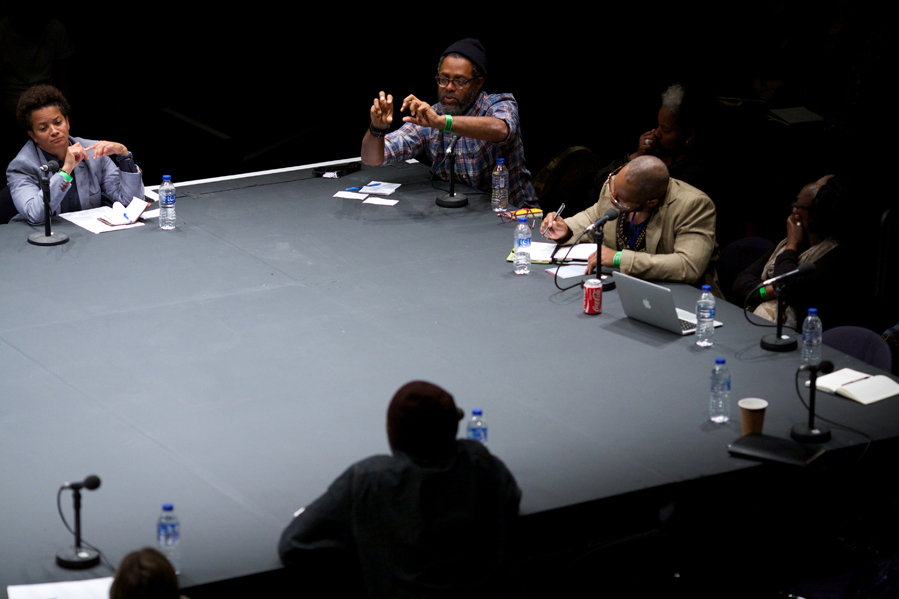
▴ Credit: Alex Woodward
Artists

Fred Moten

